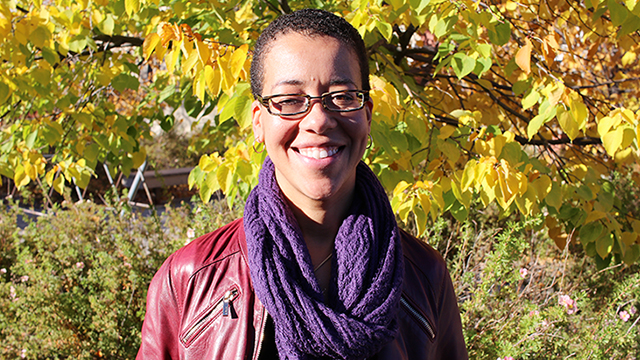
Anne José Villeneuve, Assistant Professor in French and Linguistics had the honour to kick start the series of seminars with a presentation on "La variation sociolinguistique ou comment saisir une langue en constante evolution".
"This initiative has many objectives: to have a shared knowledge of the research work of our colleagues, to create a multi-platform to share ideas and debate on them, to serve as a lever for collaborations, to involve young researchers, and to facilitate networking. In other words, the aim of this seminar is to reinforce the culture of research and creation in collegiality at Campus Saint-Jean." Said the vice dean, Hassan Safouhi.
As noted by the Dean of CSJ, Pierre Yves Mocquais, the seminars will serve mainly "to create an informal and interdisciplinary intellectual conversation that will generate and enhance intellectual life at Campus Saint-Jean and to find research common grounds and thematic intersections that could lead to common projects."
Hassan Safouhi is quite happy with the positive reaction of his colleagues. "This is an opportunity to share among us what we are passionate about, and I am happy to notice that the year's program is already complete," says Professor Safouhi.
Anne José Villeneuve, Assistant Professor in French and Linguistics had the honour to kick start the series of seminars with a presentation on "La variation sociolinguistique ou comment saisir une langue en constante evolution".
As the professor underlined, the living language we hear people speak in coffee shops and lounges, change with generation of speakers who use it. "From the beginning of time, we have always complained that youth speak poor language." She exclaimed in front of her guests gathered at the Grand Salon for this occasion.
According to Anne José Villeneuve, playing with language and correcting it is a natural tendency for Francophones. Her research works on sociolinguistic variation in spoken French revealed one thing: "everybody knows that generally women speak better than men. The way woman speak is closer to standard."
Even though certain researchers are conservatives, others push forward not only to describe the systematic variation of language depending on context and social groups but to grasp the change as well- and everyone has a role to play. "Do not forget that if we naturally acquire everyday language at home, we learn the norms at school. If we have to fight linguistic prejudices, we must also help students get to the required standard when necessary, "says Anne-José Villeneuve.
All through her presentation, Mrs. Villeneuve gave concrete examples to illustrate how Francophones adapt their language to the formality of the communication situation at hand.
The assistant professor does not intend to stop there, because she wishes to collaborate with colleagues, and extend her research to:
- Variation and national/regional identity
- Norms and education in a minority setting
- "correction" of accent
- Vernacular and health services in French
- Bilingualism and linguistic change
- And more…